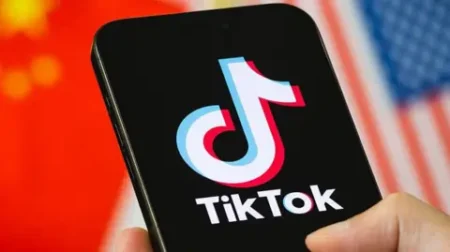The ongoing trade tensions between the United States and China have increasingly influenced the electronics market, particularly in the smartphone segment. A noticeable distinction between prominent phone brands illustrates this shift: Apple’s iPhone is predominantly manufactured in China, while Samsung’s Galaxy models are primarily produced in Vietnam, India, or South Korea. This production dynamic may have far-reaching implications as both countries enforce tit-for-tat tariffs, which have reached as high as 145% on Chinese imports, creating an environment of uncertainty within the tech industry.
Apple’s heavy reliance on Chinese manufacturing has raised eyebrows amid these trade conflicts. Despite some initiatives to shift production to countries like India, estimates by Wedbush Securities reveal that around 90% of iPhones continue to come from China. In contrast, Samsung has strategically diversified its production locations, which helps it mitigate the financial impacts associated with rising tariffs. The brand’s ability to bypass extensive reliance on Chinese production allows for greater operational stability in the face of changing trade policies.
While Samsung appears more insulated than Apple, it is not entirely exempt from the economic pressures imposed by tariffs. Despite its geographical spread in production, Samsung remains vulnerable to the broader economic implications caused by increases in border tariffs. Gerrit Schneemann, a senior analyst at Counterpoint Research, points out that while Samsung may not face the steep tariff challenges that Apple does, this does not automatically translate to increased sales or market expansion opportunities. The brand’s loyal consumer base may not easily shift towards it from Apple, regardless of price fluctuations.
The technology sector largely depends on China’s expansive assembly and supplier networks for mass production, affecting companies that may not have completely circumvented their supply chains from China. Tariffs and trade restrictions do pose challenges for specific electronics, where devices like game consoles and earphones do not enjoy exemptions. The fallout from renewed trade hostilities, particularly as China threatens retaliatory measures against nations limiting trade with it, poses risks to companies heavily invested in Chinese operations.
In a recent note from Wedbush Securities, analysts emphasized that comprehensive negotiations with China are urgently needed to protect market stability and economic health. They argue that delays in resolving tariff issues will likely harm growth and increase inflation, leaving the technology sector in a state of uncertainty regarding future strategies.
This uncertainty has placed Apple at the forefront of tariff discussions due to its high dependency on Chinese manufacturing. Analysts suggest significant price increases for future iPhone models could emerge if Apple cannot effectively pivot its production. Currently, only 10% of its production is situated outside of China, with minimal output in Vietnam and India. In contrast, Samsung has strategically relocated most of its manufacturing away from China, with the bulk produced in regions such as Vietnam and Brazil.
The major reorganization of Samsung’s manufacturing capabilities became evident after it closed its final phone factory in China in 2019. With a healthy percentage of its production occurring in Vietnam, as confirmed by Counterpoint Research, Samsung continues to solidify its presence in emerging markets and expand operational bases.
On another front, Samsung’s dual capacity as both producer and supplier of vital components within the tech ecosystem helps bolster its stability. Analysts suggest that its vertical integration within the market allows for adaptability in light of the recent trade struggles. Some analysts remain cautious, however, in projecting sales growth based solely on its diversified manufacturing capabilities, citing the devotion of Apple’s customer base and the challenges associated with shifting loyalties.
As Apple and Samsung each target different segments of the market—with Apple focusing on premium devices compared to Samsung’s diverse range of budget-friendly options—the true impact of tariffs may evolve differently for each. This complexity of market dynamics, combined with uncertainties surrounding consumer spending due to escalating prices on everyday goods, could shift consumer purchasing behaviors significantly.
Furthermore, economic constraints could lead consumers in matured markets, like the U.S., to hold onto their existing devices for longer, as other essential purchases take priority. Analysts predict that amidst a challenging economy, immediate demand for new smartphones may dull, prompting consumers to prioritize necessary spending over upgrading their devices. Ultimately, how Apple and Samsung navigate these turbulent economic waters may shape the tech landscape for years to come.











